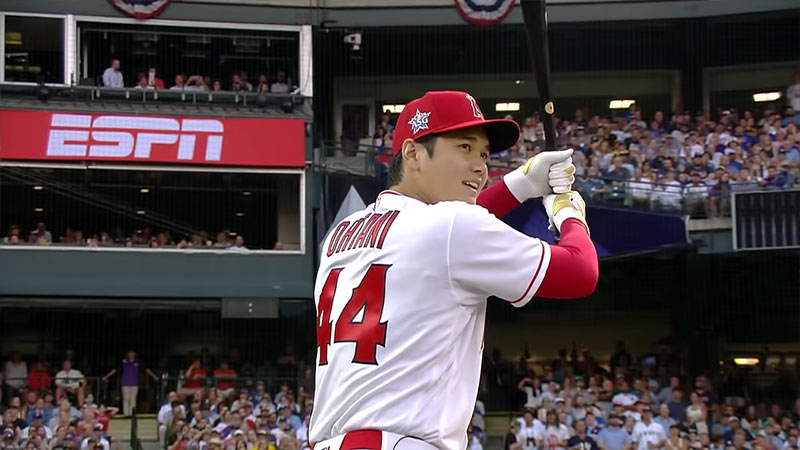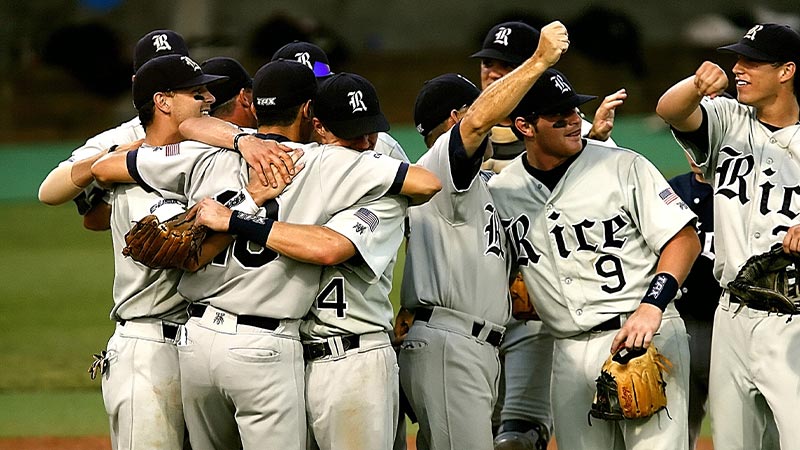Baseball, with its rich history and intricate terminologies, never fails to offer moments of nail-biting suspense.
One such heart-pounding moment is the “rubber match.” In this blog post, we delve into the question of what is a rubber match in baseball and uncover the essence.
A rubber match isn’t just a quirky phrase; it’s a defining moment in the sport. It’s the third game in a best-of-three series, where two teams are locked in fierce competition, each having won one game.
The outcome of this game not only decides who clinches the series’ victory but also carries implications that ripple throughout the season.
It’s the epitome of pressure, strategy, and drama in baseball, with teams and fans holding their breath until the final pitch.
Join us as we explore the history, significance, and strategies behind the rubber match in baseball, and gain a deeper appreciation for the captivating world of America’s favorite pastime. Stay sharp.
What Is a Rubber Match in Baseball?
There is a common confusion on what is a rubber game in baseball and why they call it a rubber match.
A “rubber match” refers to the third and decisive game in a best-of-three series, typically used in situations such as playoff rounds or tiebreaker scenarios.
The term “rubber” in this context likely originates from the card game “whist,” in which rubber is the best of three games.
In baseball, teams play a series of games, often three, to determine a winner when two teams have won one game each.
The rubber match serves as a tiebreaker, ultimately deciding which team advances or claims victory in that particular series.
It adds an extra layer of excitement and pressure to the competition, as both teams strive to secure a win and avoid elimination.
Rubber matches are common in postseason series and can be pivotal in determining a team’s overall success in a baseball tournament.
Why Is It Called a Rubber Match?
It’s normal that many of you want the rubber match meaning and the reason it is called the rubber game baseball.
The term “rubber match” in baseball has an interesting origin and is believed to have its roots in historical card games like whist, where it referred to a tiebreaker game played to determine the winner of a series.
Here’s why it’s called a rubber match in baseball:
Historical Card Game Reference
The term “rubber match” is thought to originate from the card game whist, a popular pastime in the 18th and 19th centuries.
In whist, rubber was a set of three games, and the third game was often used as a tiebreaker when each side had won one game.
This concept of a decisive third game found its way into baseball to describe a similar situation.
Rubber as a Metaphor
In the context of these card games, the word “rubber” signified resilience or the ability to bounce back, as the term itself is believed to be derived from the earlier use of “rubber” to describe the bouncing quality of Indian rubber balls.
In baseball, the third game in a series came to be known as the “rubber match” because it had the power to determine which team would bounce back and claim victory in the series.
Evolving Language
The language used in sports often draws from historical sources and metaphors.
Over time, the term “rubber match” became firmly associated with baseball and is still commonly used today to describe a third game in a best-of-three series.
Added Drama and Significance
The use of the term “rubber match” in baseball adds a sense of drama and significance to the game.
It highlights the pivotal nature of the third game, where both teams are striving to prove their superiority and avoid elimination, just as it did in the context of card games like whist.
Tradition and Consistency
Language and traditions in sports tend to persist, and the term “rubber match” has become a part of baseball’s rich lexicon.
It helps maintain a sense of continuity and familiarity for fans and players when referring to these crucial third games in the series.
The term “rubber match” in baseball is a linguistic relic from card games of the past, representing the decisive third game in a series where teams compete to prove their resilience and claim victory.
How Series of Rubber Matchs in Baseball Work?

Series of rubber matches in baseball typically occur in various contexts, such as playoff rounds, tiebreakers, or even regular-season series. Here’s how they work:
Best-of-Three Series
A series of rubber matches is essentially a best-of-three series. In this format, two teams face each other in a series of three games.
The team that wins two out of three games is declared the overall winner of the series. If each team wins one game, it leads to the necessity of a rubber match.
Tiebreaker Scenario
Rubber matches often come into play when teams are evenly matched, and they each win one game in the series.
This creates a tiebreaker situation, as neither team has a clear advantage. The third game, the rubber match, is used to determine the series winner and resolve the tie.
Significance
Rubber matches carry added significance as they serve as a decisive showdown.
The outcome of the rubber match can have a substantial impact, especially in the postseason, as it determines which team advances to the next round or secures a crucial victory.
The pressure on both teams is heightened, making the game even more intense and exciting.
Pitching Strategies
Teams often strategize carefully for rubber matches, especially regarding their pitching staff.
The starting pitcher and bullpen usage become critical factors. Teams may opt to start their best pitcher or employ specific relief pitchers to gain an advantage in the crucial game.
Venue and Format
The location of the rubber match, whether it’s played at the home field of one of the teams or on a neutral site, can vary depending on the specific circumstances and league rules.
The format, however, is consistent – a single game to determine the series winner.
A series of rubber matches in baseball consists of a best-of-three series, and the third game becomes the rubber match when each team has won one game.
These games are used to break ties and determine the overall series winner, adding a significant and exciting element to baseball competitions. T
Significance of the Rubber Match in Baseball

The rubber match in baseball holds significant importance for various reasons, both in terms of game strategy and the broader context of a series.
Here are the key points highlighting its significance:
Series Decider
The rubber match serves as the ultimate tiebreaker in a best-of-three series.
When both teams have won one game each, the third game takes on immense importance, as it determines which team ultimately wins the series.
This makes it a pivotal moment for advancing in the playoffs or securing a series victory in the regular season.
Psychological Impact
The rubber match often has a significant psychological impact on players and teams. It’s a pressure-packed situation where both teams are eager to prove their superiority.
Winning the rubber match not only secures the series but can also boost a team’s confidence and morale, while losing can be a setback that affects morale and momentum.
Pitching Decisions
One of the most critical aspects of a rubber match is the decision-making surrounding pitching. Teams may choose to start their ace or employ specific relievers to gain an advantage in this crucial game.
Pitchers play a key role in determining the outcome, and their performance can make or break a team’s chances in the rubber match.
Momentum Shift
The rubber match can create significant momentum shifts within a series or even an entire season. The winning team gains a boost in confidence and momentum, which can carry over to future games.
For teams in the playoffs, a victory in the rubber match can set a positive tone for the rest of the postseason.
Fan and Media Attention
Rubber matches often attract heightened fan and media attention. The anticipation and excitement surrounding the decisive game make it a focal point in the series.
Fans eagerly follow the matchup, and the media provides extensive coverage, making it a memorable part of the baseball season.
The rubber match in baseball is of great significance because it determines the series winner, carries a psychological impact on players and teams, and garners increased attention from fans and the media.
Strategies in the Rubber Match
Strategies in the rubber match of a baseball series are crucial, as this decisive game determines the overall winner.
Teams often employ various tactics to gain an advantage and secure victory. Here are some key strategies involved:
Pitching Decisions
- Starting Pitcher Selection: Choosing the right starting pitcher is paramount in the rubber match. Teams often opt for their ace or a pitcher with a proven track record in high-pressure situations. This gives them a strong foundation for success.
- Bullpen Usage: Teams may be more willing to use their bullpen liberally in the rubber match, given the win-or-go-home nature of the game. Managers may employ specific relief pitchers for key moments to exploit matchup advantages.
Defensive Alignment
Defensive Strategy: Teams may adjust their defensive alignment to counter the opposing team’s strengths. Shifting infielders or employing specific defensive shifts can help neutralize power hitters or improve the chances of inducing groundouts or fly balls.
Offensive Approach
- Hitting Strategy: Teams may adjust their offensive approach to exploit the opposing pitcher’s weaknesses. This can involve working the count, trying to draw walks, and taking advantage of situational hitting, such as bunting or hitting and running.
- Lineup Adjustments: Managers might tweak the lineup to optimize their chances. This could involve making substitutions for favorable matchups against the opposing pitcher, ensuring a well-balanced order, or placing reliable contact hitters in key positions.
Mental Toughness
- Staying Composed: Maintaining mental composure is essential in the rubber match. Players and teams must stay focused, avoid making costly mistakes, and not let the pressure of the situation affect their performance.
- Aggressiveness: Being aggressive, both on the basepaths and at the plate, can put pressure on the opposing team. Smart base running, stealing bases, and taking calculated risks can create scoring opportunities.
Adaptation
In-Game Adjustments: Teams must be prepared to adapt to changing circumstances during the game. Managers and players need to make quick decisions based on the evolving situation, whether it’s adjusting to a new pitcher, countering defensive shifts, or adapting to changes in the score.
The rubber match is a high-stakes game, and success often hinges on executing these strategies effectively.
Teams must make the right calls in terms of pitching, defense, and offense, while also staying mentally tough and adaptable.
FAQs
When does the rubber match baseball happen?
The rubber match in baseball occurs in a three-game series when each team has won one game. It’s the third and final game of the series, usually played to determine the overall winner.
Why is it called the rubber match?
It’s called the “rubber match” because of a historical association with the term “rubber game.”
“Rubber” was originally a British slang term meaning a decider or tiebreaker. The rubber match serves as the deciding game in a series.
What is a rubber match?
A rubber match is the third game in a series, often occurring in a best-of-three series. It is a pivotal game played to break the tie between two teams who have each won one game. The winner of the rubber match takes the series.
What does rubber match mean?
“Rubber match” means the decisive game in a series where each team has won one game, serving as the tiebreaker to determine the overall series winner.
The term emphasizes its role as the game that “rubber stamps” or validates the winning team’s superiority in that series.
Who Plays the rubber match in baseball?
In baseball, the two teams that have been competing in a three-game series play the rubber match.
This game is essential in settling the series, as it determines which team ultimately wins and which team loses the series, making it a crucial game in the context of the series.
Wrapping Up
In the world of baseball, where every pitch and play carries immense weight, the term “rubber match” epitomizes the essence of competition.
As we’ve unraveled in this blog post, the rubber match is a pivotal moment, laden with historical references and strategic significance.
This term encapsulates the very spirit of baseball – the relentless pursuit of victory, the mental fortitude to withstand pressure, and the crafty maneuvering of pitching, defense, and offense.
It’s the deciding game that leaves fans on the edge of their seats, eagerly awaiting the outcome.
Whether in the regular season, the playoffs, or tiebreaker situations, the rubber match remains an iconic chapter in baseball’s story.
It’s a testament to the sport’s enduring traditions and the enduring thrill that baseball brings to players and fans alike.
So, the next time you hear “rubber match” during a baseball game, you’ll understand that it’s more than just a term in the beloved game of baseball. Thank you so much.







